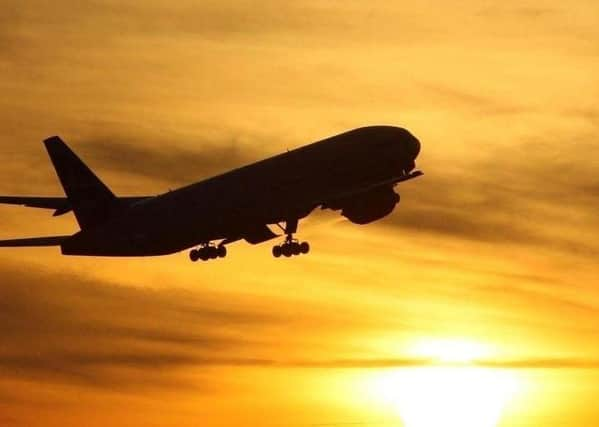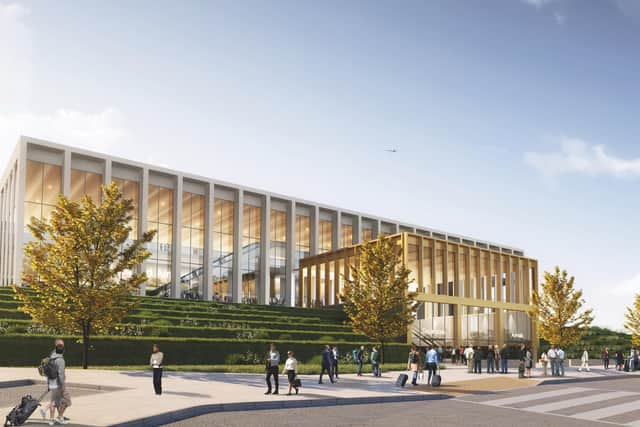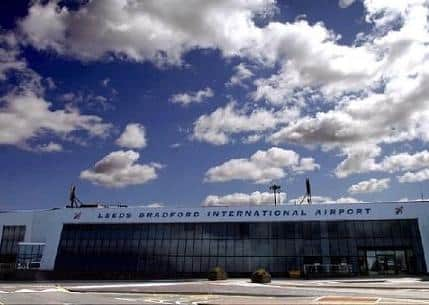Turning down the volume on aviation noise as flights take off again and Leeds Bradford Airport plans expansion: Rob Light


One thing we can be certain of is that, when we do start flying again, noise will increase. The longer recovery takes, the more disruptive this noise will be to some communities who, for the best part of a year, have lived under the quietest skies they have ever known.
When noise returns, the more noticeable it may be, perhaps even more so than before.
Advertisement
Hide AdAdvertisement
Hide AdSome might question why we should focus on noise while airports and airlines are battling to survive and while the majority of planes are grounded.


The Covid-19 pandemic has had a devastating impact on the aviation industry, posing new long-term challenges which cannot be ignored.
But I believe now is exactly the right time to be thinking about how to manage noise better, alongside other environmental concerns associated with aviation.
Right now, a number of proposals to expand airports, like Leeds Bradford, are being considered. Inevitably, over time these would increase the number of aircraft movements, which in turn makes the amount of noise being produced, and people impacted by it, even more critical.
Advertisement
Hide AdAdvertisement
Hide AdAt the same time, government funding was recently announced to help take forward the biggest change to how airspace is designed and operated in the UK for over half a century. If done well, this could bring benefits in terms of emissions and noise, but only if communities are properly consulted and listened to.


So, the aviation industry is turning its attention to the future in a post-pandemic world, and so should we. The pandemic provides us with an unprecedented opportunity to step back and consider how to improve and build upon the previous ways of working with a view to keeping what works well and improving what doesn’t.
Last month, the Independent Commission on Civil Aviation Noise (ICCAN) published a route map for the future of aviation noise management, in which we set out recommendations to the Government on how improvements could be made that would support a sustainable recovery for the aviation industry.
We know that the future will be very different. Since the pandemic began, we have seen many airlines retiring some of their noisier aircraft such as B747s and A380s, as they rightly recognise the model for aviation travel will be different in the future.
Advertisement
Hide AdAdvertisement
Hide AdThere is a widespread acceptance now that more sustainable flying is the only way forward. The pathway to carbon neutrality must be real and achievable, but this must sit alongside the improved management of the noise impacts that result.
We want change to support the industry and create a more positive environment where people better understand the impacts of aviation noise and have a say in decisions that might impact their lives.
An effective framework for noise management at a national level is key, not only for delivering the recovery and sustainable growth of the aviation industry, but also for addressing the impacts of aviation noise on people’s health, wellbeing and quality of life.
Prior to the pandemic, more than one million people in the UK were affected by aviation noise, and while this number might be lower now, it won’t stay like this as people start to fly again.
Advertisement
Hide AdAdvertisement
Hide AdSo, it is vital that those impacted have a clear understanding of how and why noise is occurring, that they know where responsibility lies and what they can do to seek improvements.
People need to have confidence in how decisions are made by local authorities on issues like planning applications, the way their complaints are handled and responded, and whether their views will be taken properly into account by industry and regulators.
So, better noise management must be an essential component within the Government’s plans to build back post-Covid.
ICCAN was established to help increase trust, transparency and clarity around aviation noise and while the landscape we are operating in has radically changed, the same issues remain.
Advertisement
Hide AdAdvertisement
Hide AdIt is a complex subject that feels inaccessible for many whose lives are disrupted by it daily.
That’s not to say we haven’t seen good practice up and down the country, but there needs to be greater consistency and transparency so this can be shared more equally.
Now is the time to act, because if we don’t, we will miss a golden opportunity both to improve the lives of people across the UK who are affected, and ensure a brighter and sustainable future for aviation.
Rob Light is head commissioner of the Independent Commission on Civil Aviation and former leader of Kirklees Council.
Advertisement
Hide AdAdvertisement
Hide AdSupport The Yorkshire Post and become a subscriber today. Your subscription will help us to continue to bring quality news to the people of Yorkshire. In return, you’ll see fewer ads on site, get free access to our app and receive exclusive members-only offers. Click here to subscribe.
Comment Guidelines
National World encourages reader discussion on our stories. User feedback, insights and back-and-forth exchanges add a rich layer of context to reporting. Please review our Community Guidelines before commenting.